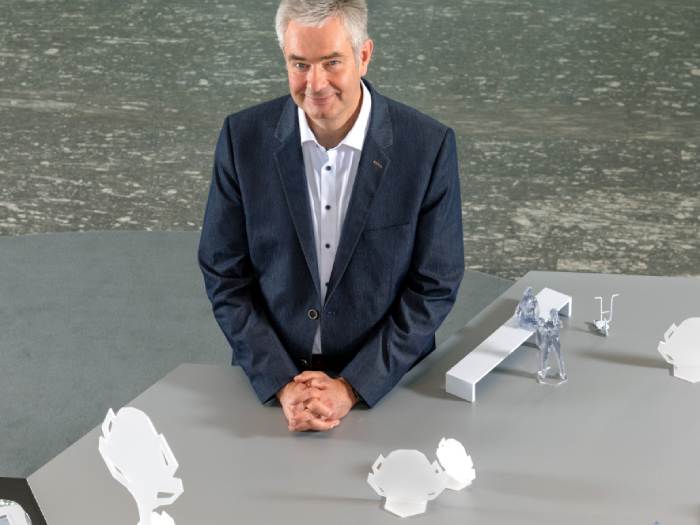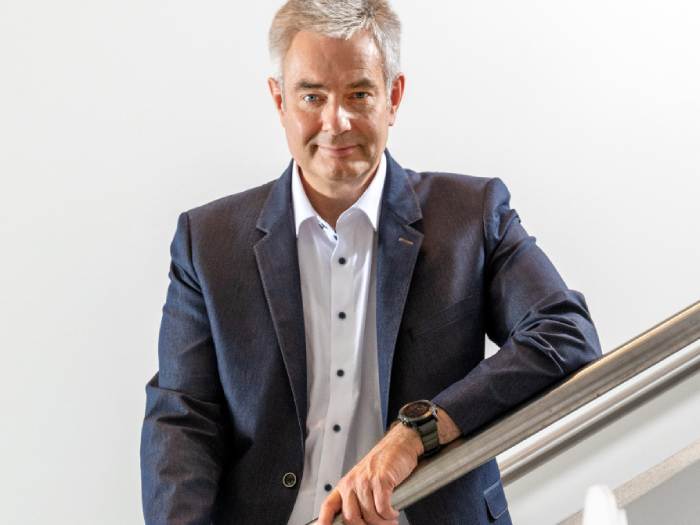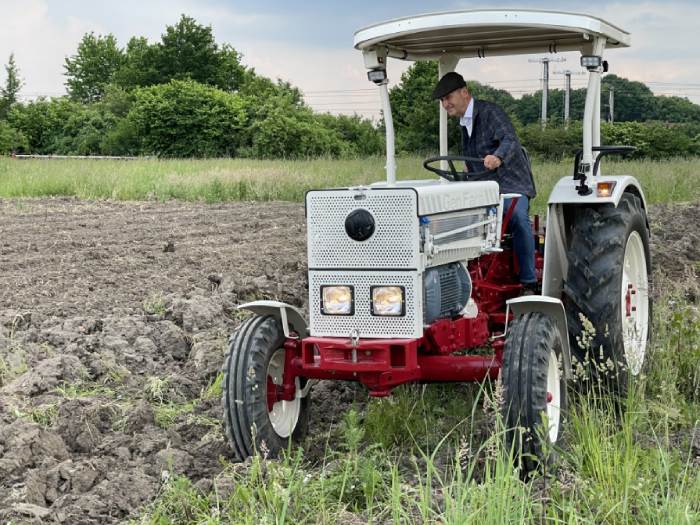Towards 2050: carbon neutral and autonomous mobility, available to all
The mobility sector, and the automotive industry in particular, is currently undergoing the most radical transformation in its history. Concepts such as zero emissions and autonomous driving are gradually becoming reality, both in urban and in rural areas, creating completely new possibilities.
In the near future, we will be able to use time spent in the car for social contact, entertainment and relaxation. Mobility will have a completely different role in everyday life – with benefits for both society as a whole and individuals. This is the vision of Nikolai Ardey, Head of Volkswagen Group Innovation.
Horizon 2050

“In 2050, carbon-neutrality, smart energy supplies, connected mobility and autonomous driving will be widespread, and we will move around in a variety of ways,” explains Ardey, who then goes on to talk about a mix of micromobility, robot taxis, public transport and individual mobility. Mobility agents will be largely autonomous and controlled by artificial intelligence, so much so that one day traffic lights will no longer be necessary; cars will park themselves in a vertical configuration, taking up minimal space.
Thus, “cities will become quieter, parking spaces will become green spaces once again, and we will regain quality of life. This is a vision statement that we are using to derive the intermediate stages in the 2030s and 2040s.”
NEW AUTO
“Our research activities are focused on sustainable, networked, secure and tailored mobility solutions, and begin around eight years ahead of a potential launch of new technologies, products or services. This means that innovations that could go into production in 2026 or 2027 are already in a subsequent phase, development,” Ardey continues, explaining that the focus of Volkswagen Group Innovation is now on the “NEW AUTO” corporate strategy, which will see the Group transform itself from a vehicle manufacturer into a software-driven mobility provider by 2030. “But at the same time, we are working to answer another question: what awaits us in the decades to come? Basic research is essential for this.”
From theory to practice
In general, while Europe has always been strong when it comes to basic research, the USA and China are often faster to transfer this into the large-scale industrialisation of technologies. “Often other countries are much faster and braver to invest in innovation; when a start-up grows and needs larger financing rounds, sometimes in Europe the money dries up, and that is a problem,” Ardey points out, explaining that a different risk-taking culture and a more concerted funding policy is needed.
“When it comes to quantum computing, we have excellent basic research. Now, the right steps need to be taken when it comes to industrialisation as well. At Volkswagen we do not have these problems, precisely because scaling is our strength: every day we work on projects which must be ready for scaling and then hand them over to our colleagues to advance development.”
The basis for innovation

The Volkswagen Group has been working on innovation and new technologies for 50 years now, even though previously the focus was on what is known as “closed innovation”, which means research done behind closed doors. But a pioneering spirit and a willingness to transform have always been a key part of the company’s DNA.
“In 2019, Group Research became Group Innovation, and we will need to keep on reinventing ourselves in the future as well, because development and transformation have an incredibly steep gradient. We are moving away from traditional car topics, such as drive train and transmission, towards energy systems, digitization and holistic mobility solutions instead,” Ardey continues; he then goes on to highlight the increasing use of co-innovation in agile, strong networks to increase awareness of these topics.
Global research
The Volkswagen Group has research centres and “incubators” in all corners of the world, from China and the USA to Israel: this is a specific choice, to ensure that the company keeps its finger on the pulse of the innovation hotspots, such as Silicon Valley and Tel Aviv. “Our teams include people who live locally, are part of the scientific community and who understand the culture; this is how we have built up a strong network and are close at hand when start-ups emerge or interesting research findings come out of universities,” Ardey explains.
When there is a new idea, Volkswagen Group Innovation provides support in various ways, ranging from joint development to investment; this is how international research projects come about, which turn into products for users all around the world. “Diversity is key to guaranteeing success for a team, and infinitely more so for an innovation unit because it fuels it directly,” Ardey highlights.
Being visionary
Volkswagen Group Innovation uses artificial intelligence to analyse financial flows, patents, newspaper articles and scientific literature. These analyses allow it to identify signals which could indicate a trend; values studies also play a key role. This is the starting point for developing solutions consistent with these changes, inserting them into the corporate strategy and product portfolios of the brands.
A good example of this, in Ardey’s words: “Since 2018 we have been collaborating with QuantumScape to research large-scale production of solid-state batteries, which will enable longer ranges and shorter charging times for electric vehicles. The next step is to hand the project over to the Salzgitter Battery Centre of Excellence to set up a pilot plant for solid-state battery production.”
Future Mobility Days
The Volkswagen Group’s vision is a fully integrated mobility system: for this reason, innovations and research projects are directly linked. Over the course of the recent Future Mobility Days event, the core topics were long-distance mobility and autonomous driving, for which cloud computing will be key: by moving the laborious calculation of technical parameters from the car to the cloud, it will be possible to eliminate certain hardware components in the car, drastically reducing the costs of autonomous driving and making it affordable for everyone.
“Decarbonisation is also a driving force behind our projects, and so we converted a twelve-cylinder test bench, which we can use to remove CO₂ from the air through passive mineral absorption,” Ardey recounts.
The electric tractor

Future Mobility Days also featured the presentation of an electric tractor to be used in Africa, where rural exodus linked with a decline in nutrition is creating difficult social conditions in the cities. Replacing manual work and introducing electric tractors would help to tackle this problem.
“In this case we are working on digitization and electrification and building a hub for sustainable agriculture in partnership with GIZ (Deutsche Gesellschaft für Internationale Zusammenarbeit, a German development agency) and the University of Rwanda. It will be a complete ecosystem with solar infrastructure for electric tractors that you can book via an app and much more besides. It will thus be possible to increase the harvest fivefold, thereby improving the income of farmers and – hopefully – halting the rural exodus in the process.”
This is precisely the concept behind innovation: creating added value for society.
Source: Volkswagen AG
VGI | Responsible O.U.: VP | Creation date: article date | Class 9.1
